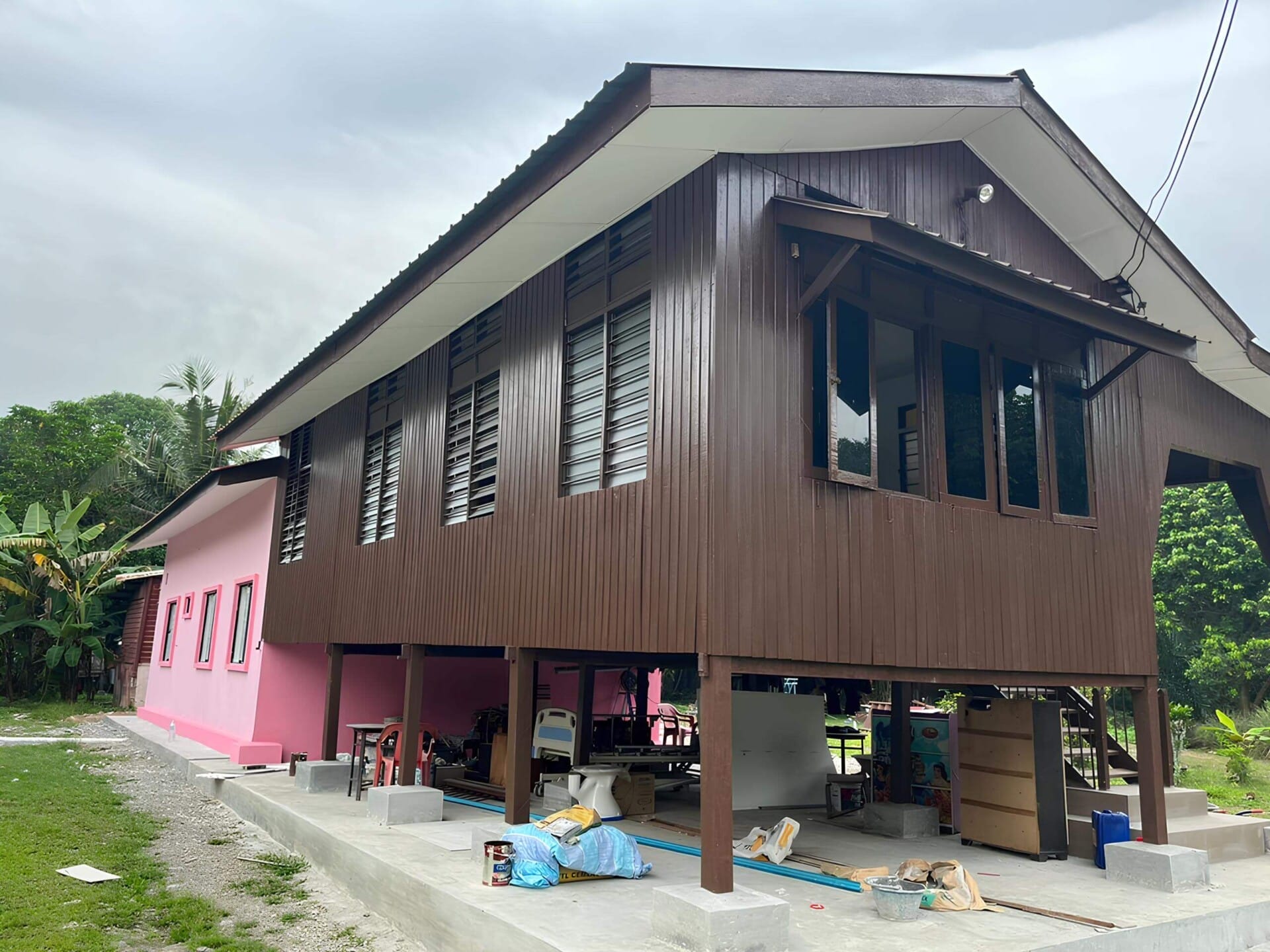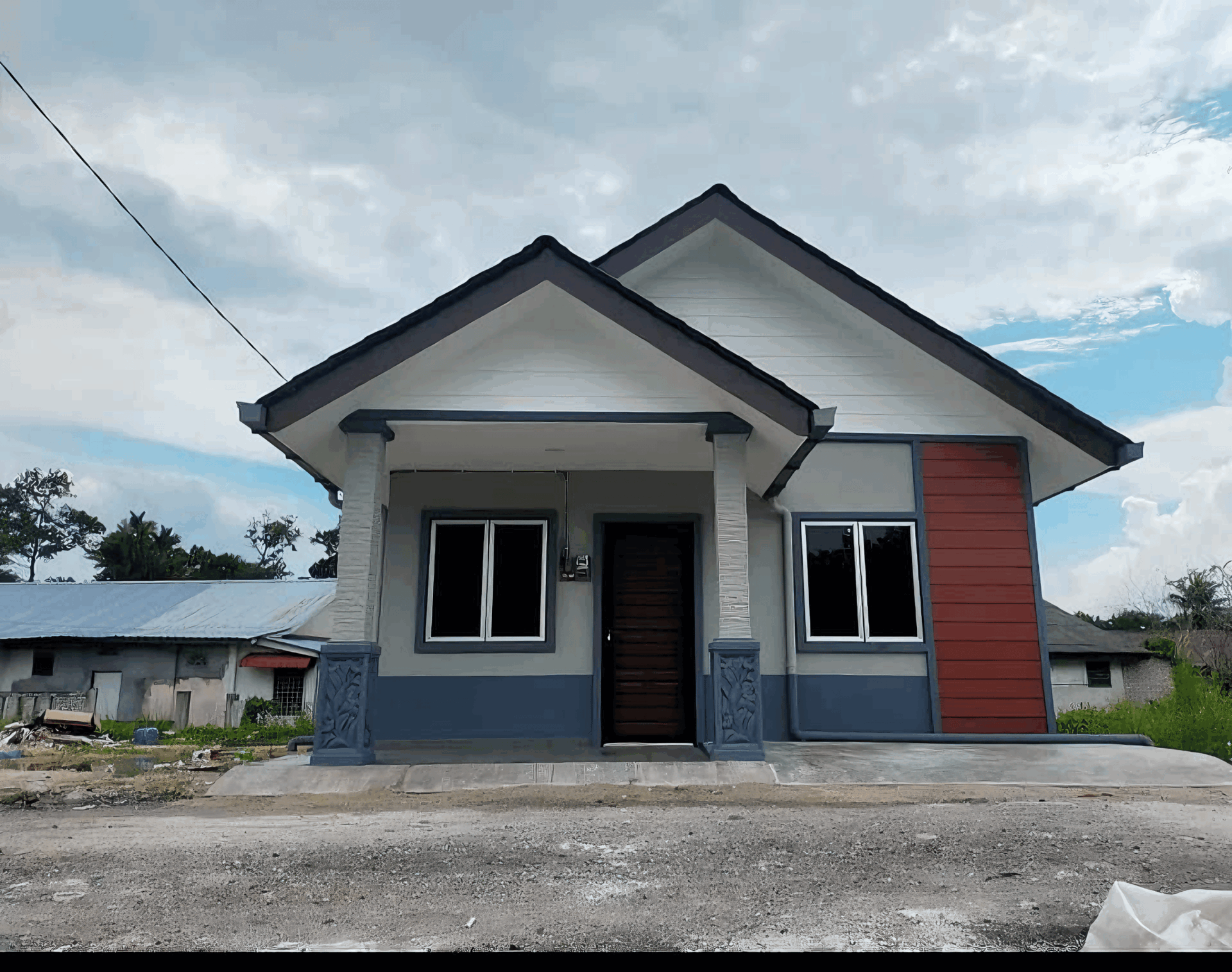- Bina Rumah Batu-Bata
- Zero Deposit
- Spesifikasi Rumah
- Lokasi Projek
- Pembiayaan LPPSA
- Garis Panduan LPPSA (Rasmi)
- Soalan Lazim LPPSA
- E-Book LPPSA (Download)
- 1. Apa itu LPPSA?
- 2. Kelebihan LPPSA
- 3. Syarat Kelayakan
- 4. Jenis-Jenis Pembiayaan
- Jenis 1 – Pembelian Rumah Kediaman Yang Telah Siap
- Jenis 2 – Membina Rumah Di Atas Tanah Sendiri
- Jenis 3 – Membeli Rumah Kediaman Yang Sedang Dibina
- Jenis 4 – Pembelian Tanah Bagi Pembinaan Rumah
- Jenis 5 – Melunaskan Keseluruhan/ Sebahagian Pinjaman Sedia Ada Daripada Bank/ Institusi Kewangan
- Jenis 6 – Pembinaan Rumah Kediaman Di Atas Tanah Yang Sedang Dibiayai Oleh BPP/ LPPSA
- Jenis 7 – Ubah Suai Rumah Yang Sedang Atau Telah Selesai Bayar Melalui LPPSA
- 5. Semak Kelayakan LPPSA
- 6. Dokumen Yang Diperlukan
- 7. Insurans/ Takaful LPPSA
- 8. Kos Yuran Guaman
- 9. BONUS: Bina Rumah
- Pembiayaan Koperasi
- Pengeluaran KWSP
- Bayaran Tunai
- Kalkulator
How to Spot a Reliable Construction Company in Malaysia: 6 Red Flags | RumahHQ
When it comes to building or renovating your dream space, choosing the right construction company is a pretty big deal. You want someone who understands your vision and delivers quality work without any surprises along the way. But with so many options out there, how do you know who to trust? Well, that’s where we come in! In this article, we’ll highlight six red flags that can help you spot a reliable construction company in Malaysia. Whether you’re a seasoned homeowner or a first-time builder, these tips will guide you in making an informed choice. So let’s dive in and make sure your project gets off to a solid start!
Identifying Credentials and Certifications
When looking for a construction company in Malaysia, one of the first steps is to check their credentials and certifications. This ensures that the company operates legally and adheres to the standards set forth by the Malaysian government and industry regulators. A reliable contractor should have crucial credentials such as the Certificate of Registration with the Companies Commission of Malaysia (SSM) and appropriate construction licenses issued by the Construction Industry Development Board (CIDB).
Don’t be shy to ask for documentation! Most reputable construction companies will happily share their certifications with you. Look for the following highlights when reviewing these credentials:
- CIDB Grade: This indicates the financial capacity and technical ability of the contractor.
- ISO Certifications: An ISO certification signifies that the company complies with international quality management standards.
- Safety Certifications: Check for certifications related to workplace safety, such as OHSAS 18001 or ISO 45001.
You can also verify these details by visiting relevant official websites or government portals. Having a verified company increases your peace of mind and ensures that you’re making an informed decision. Below is a simple comparison table that helps you understand the significance of these certifications:
| Certification | Purpose | Importance |
|---|---|---|
| CIDB Registration | Legal authority to operate | Ensures compliance with local laws |
| ISO Certification | Quality management | Guarantees quality and efficiency |
| Safety Certifications | Workplace safety standards | Protects workers and reduces liability |

Understanding Insurance and Liability Coverage
When diving into the world of construction, it’s crucial to grasp the importance of insurance and liability coverage. A reliable construction company should have both general liability insurance and workers’ compensation coverage. This ensures that you’re protected against any accidents that may occur on-site, safeguarding both your property and the workers involved. If a company can’t provide proof of their insurance, it’s a significant red flag that shouldn’t be ignored.
Understanding the specifics of what different policies cover can also help you make an informed decision. Here are some key areas to pay attention to:
- Property Damage: Covers damages to your property during the construction process.
- Injury to Workers: Ensures that injuries sustained by workers are covered, preventing you from potential liability.
- Rework Costs: Protects you financially in case of poor workmanship that necessitates additional work.
To simplify things, let’s lay out a quick comparison of typical coverage types with a focus on construction:
| Coverage Type | Description | Importance |
|---|---|---|
| General Liability Insurance | Covers property damage and bodily injury claims. | Protects you from lawsuits and damages. |
| Workers’ Compensation | Provides medical benefits and wage replacement to injured workers. | Ensures workplace safety and legal protection. |
| Professional Liability Insurance | Covers negligence claims arising from professional services. | Safeguards against project management errors. |

Evaluating Past Projects and Client Testimonials
Evaluating a construction company’s past projects can provide valuable insight into their capabilities and reliability. A good starting point is to review their portfolio, which should showcase a variety of completed projects. This gives you an idea of their style and versatility, whether they specialize in residential, commercial, or industrial work. Look for projects that resemble what you want to build; if they have experience with similar types, that’s a promising sign. Don’t hesitate to ask for references or visit finished sites to see the quality of their work firsthand.
Client testimonials are another crucial factor in assessing a construction company. Positive feedback from previous clients can speak volumes about the company’s reliability, quality, and communication. Instead of just reading the glowing reviews on their website, try to dig a bit deeper. Look for independent review platforms or local forums where people share their experiences. If you find consistent praises about the same aspects—like timeliness, cleanliness, or adherence to budget—it signals a company that values its commitments.
Furthermore, you could consider creating a simple table to summarize key information about the companies you’re evaluating. It helps in making side-by-side comparisons to see which company aligns best with your needs. Here’s a quick example:
| Company Name | Project Type | Client Ratings |
|---|---|---|
| Company A | Residential | 4.8/5 |
| Company B | Commercial | 4.5/5 |
| Company C | Industrial | 4.9/5 |
By taking the time to evaluate past projects and gather client testimonials, you can make a more informed choice and steer clear of potential pitfalls when selecting a construction company.

Assessing Communication and Responsiveness
When evaluating a construction company, pay close attention to how they communicate with you. A reliable company will be quick to respond to your inquiries, showing they value your time and concerns. If you find yourself waiting days for a reply, it’s a red flag that they might not prioritize customer service. Look for companies that provide multiple channels for communication, such as phone, email, and even chat options, ensuring you can reach them easily when needed.
Another aspect to consider is the clarity of the information provided. A trustworthy contractor will be transparent about project timelines, costs, and potential issues. Be cautious if you encounter vague answers or if the company evades specific questions. This can indicate a lack of experience or, worse, the possibility of hidden costs down the line. A professional company should provide comprehensive quotes and keep you informed every step of the way.
don’t forget to assess their responsiveness during the project phase. A reliable construction firm will keep you updated on progress and consult you before making significant decisions. To help you evaluate their communication style, consider compiling feedback from past clients. You can use this simple table to summarize your findings:
| Client Feedback Aspect | Positive Responses | Negative Responses |
|---|---|---|
| Response Time | Quick replies within 24 hours | No response for days |
| Information Clarity | Detailed and transparent estimates | Vague or confusing explanations |
| Project Updates | Regular progress reports | Rarely updated or uninformed |
Stay vigilant in assessing these aspects of communication and responsiveness. Being proactive will help you spot those potential red flags early on, ensuring you choose a construction partner that meets your expectations and delivers quality work.

Recognizing Transparent Pricing Structures
When searching for a trustworthy construction company, one of the most crucial aspects to consider is their pricing structure. A reliable company will openly share its pricing model, allowing clients to see exactly what they are paying for. This transparency can significantly ease any uncertainties about hidden costs emerging during a project. Look out for companies that provide clear, itemized quotes—this makes it easier to understand what services and materials are included in the estimate.
Another telltale sign of transparent pricing is the readiness to discuss the breakdown of costs. Attentive companies often provide detailed explanations for each line item in their estimates. This can include information on labor charges, materials, and any additional fees. If a contractor is unwilling to explain how their fees are calculated, it could indicate they are not operating in good faith. Consider asking for a comparative table that showcases their pricing against industry standards to further validate their claims.
It’s essential to also watch for additional documents, such as contracts or service agreements, that clarify the pricing details. These documents often contain stipulations regarding potential cost adjustments and payment schedules. Be sure to check for clear clauses about what happens in the event of unexpected issues or changes in project scope. Companies that prioritize transparency will often include reassuring terms that protect clients from unexpected charges, fostering a trusting relationship from the outset.

Investigating Compliance with Local Regulations
When selecting a construction company, it’s vital to zero in on their adherence to local regulations. A reliable company should possess a comprehensive understanding of the laws and safety standards applicable in Malaysia. Compliance not only indicates professionalism but also a commitment to ensuring the safety and legality of the building process. If a company seems vague about their permits or building codes, it might be a significant red flag.
Here are a few indicators that can help you assess compliance:
- Proper Licensing: Verify that the company has valid licenses and permits for construction activities. Each state in Malaysia has its own set of requirements.
- Knowledge of Local Policies: The company should be well-versed in local building regulations and should readily provide information about them.
- Transparent Documentation: Reliable companies maintain clear records and documentation of compliance efforts, which they should be willing to share.
In some cases, it can be beneficial to directly check the company’s previous projects for adherence to regulations. A good practice is to ask for references or even to visit one of their completed sites. This not only gives you insight into their workmanship but also into how they handle regulatory compliance. Ultimately, selecting a construction company that prioritizes these factors can save you from potential legal issues and ensure that your project runs smoothly.

Observing Professionalism in Conduct and Attitude
One of the first things you might notice when evaluating a construction company in Malaysia is their overall conduct and attitude. A reliable construction company embodies professionalism through respectful communication and punctuality. If a company shows up late to a meeting or fails to respond within a reasonable timeframe, it raises concerns about their commitment to your project. Professionalism can manifest in various ways, but some key indicators include:
- Clear Communication: They should explain everything in layman’s terms, breaking down complex jargon.
- Transparency: Look for openness about costs and timelines; they should be willing to share project progress and potential challenges.
- Respect for Feedback: A professional company values your input and demonstrates a willingness to make adjustments.
Additionally, take note of how they treat their employees and subcontractors. A construction company that prioritizes a respectful work environment is likely to translate that ethic into its dealings with clients. Observe their work sites too; sites that are well-managed and organized typically reflect the company’s dedication to professionalism. Remember, a good company won’t just meet expectations; they will seek to exceed them, ensuring not just a smooth process but also peace of mind for you as a client.
Wrapping Up
When it comes to building your dream home or renovating that cozy space, finding the right construction company is super important. After diving into the six red flags we’ve talked about, you now have a clearer idea of what to watch out for. Remember, it’s all about trust, transparency, and having a team that understands your vision. Don’t rush into decisions – take your time to do your homework, ask questions, and maybe even reach out to previous clients for their thoughts.
At the end of the day, a good construction company should feel like a partner in your journey, not just a contractor ticking off a checklist. So, keep your eyes peeled and your instincts sharp. Happy building, Malaysia! Your perfect project is just around the corner!
Source link
kontraktor rumah
bina rumah
pinjaman lppsa
pengeluaran kwsp
spesifikasi rumah
rumah batu-bata
pelan rumah
rekabentuk rumah
bina rumah atas tanah sendiri
kontraktor rumah selangor
rumah banglo



